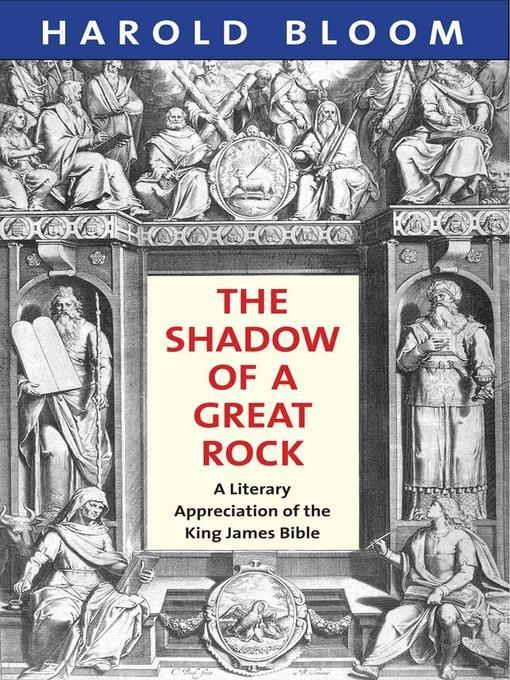
The Shadow of a Great Rock
A Literary Appreciation of the King James Bible
- اطلاعات
- نقد و بررسی
- دیدگاه کاربران
نقد و بررسی

Starred review from September 15, 2011
To Bloom (Sterling Professor of the Humanities, Yale; The Anatomy of Influence: Literature as a Way of Life), only Shakespeare rivals the supreme literary merit of the King James Bible (1611). Its development by a group of more than 50 translators divided into six committees, five of which were chaired by an "undistinguished group of writers," produced an "inexplicable wonder" that Bloom analyzes in relationship not only to the Hebrew and Greek original versions, but also to various translations, especially those of William Tyndale, "the greatest English translator," of Miles Coverdale, and of the Geneva Bible (1560). Bloom writes as a literary critic and secularist deeply attracted to the linguistic beauty of the King James Bible; his literary appreciation remains mostly at the level of language; plot construction, characterization, setting, etc., are not his focus. VERDICT At times idiosyncratic but often adulated, Bloom's literary criticism needs thoughtful consideration by linguistic and literary scholars, cultural historians, and Bloom admirers, as well as by the general public. The book is a tour de force and the result of a lifetime of critical pondering by a major critic.--Carolyn M. Craft, formerly with Longwood Univ., Farmville, VA
Copyright 2011 Library Journal, LLC Used with permission.

Starred review from September 15, 2011
Inspired by the literary critic Walter Pater, Bloom approaches the King James Bible seeking not religious truth but literary beauty. And he marvels at how much he finds, particularly given the undistinguished committee whounder royal commissioncompleted this landmark translation of scripture 400 years ago. As a linguistically sophisticated scholar, Bloom moves adroitly between the KJB and the earlier translations of Tyndale and Coverdale, expressing astonishment at how often the KJB translators, despite their missteps, improve on the work of their talented predecessors. Readers also benefit from illuminating comparisons with the Geneva Bible (which the KJB supplanted), with the Tanakh (or Hebrew Bible), and with the Greek New Testament, so acquiring a deep appreciation for the compelling narrative the KJB delivers in its Genesis, the majestic poetry unfolded in its Isaiah, and the rich ambiguity compressed in its Mark. Like Melvyn Bragg in his recent Book of Books (2011), Bloom celebrates the KJB's quatercentenary in a strictly secular vein (though he ignores the social and political influence of the book, important to Bragg, focusing exclusively on its literary artistry). Resistant though he might be to its religious message, Bloom yields to the KJB's literary splendorand invites readers to join in his surrender.(Reprinted with permission of Booklist, copyright 2011, American Library Association.)




دیدگاه کاربران